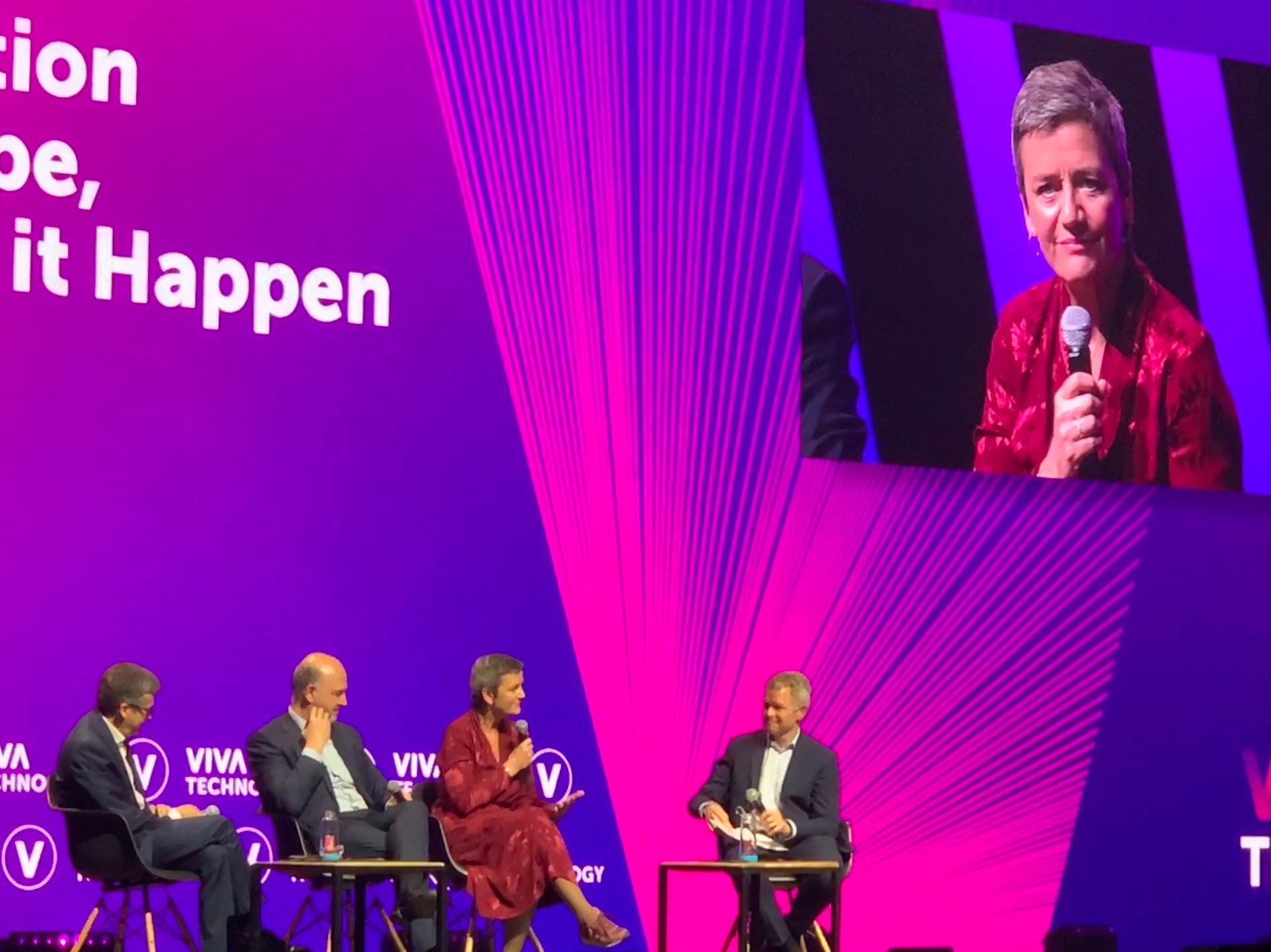Instead of breaking up Facebook, the EU may force it to share its data
Should Facebook be broken up? Despite her reservations about the massive social network, the EU’s competition commissioner, one of the few people with the authority to pursue such an aggressive action, doesn’t think it’s the best way forward.


Should Facebook be broken up? Despite her reservations about the massive social network, the EU’s competition commissioner, one of the few people with the authority to pursue such an aggressive action, doesn’t think it’s the best way forward.
“For us, it would be a remedy of the very last resort,” Margrethe Vestager said today in Paris at Viva Technology, a flagship European tech conference. “It would keep us busy in court for maybe a decade.”
Vestager, whose directorate recently slapped Google with a $1.7 billion fine for alleged unfair practices in the online advertising market, thinks there’s a better way: She says it could be much more powerful and direct if tech titans like Facebook were required to give other companies access to important data.
“We think much more about access to data when it comes to, for instance, misuse of position of a monopoly,” she said. ”If you have no access to data, you won’t be able to make it in the market because you cannot access potential customers.”

The competition watchdog’s comments add to a growing debate about how to regulate the tech giants that are increasingly pervasive in modern life. Chris Hughes, a Facebook co-founder, recently argued in the New York Times that the company should be dismembered. “It is time to break up Facebook,” he wrote. He said the US Federal Trade Commission made a mistake by allowing the social network to acquire Instagram and WhatsApp, giving it even more global reach and helping it make the leap from desktop to mobile.
“When it hasn’t acquired its way to dominance, Facebook has used its monopoly position to shut out competing companies or has copied their technology,” Hughes wrote.
As evidence, Hughes cited reports that Facebook has prioritized its own videos in its news feed over those of rivals, such as Vimeo and YouTube, and argued that the Vine video network withered away after Mark Zuckerberg’s company blocked it. He suggested investors aren’t willing to fund companies that venture onto Facebook’s turf, because they’re vulnerable to either getting acquired by Zuckerberg (Hughes’s former roommate at Harvard) for a small sum, or copied and blown out of the water by the much bigger player.
Breaking up Facebook would be contentious, complicated, and expensive. But Vestager, befitting someone with her job description, thinks competition has to be preserved for innovation to thrive, and that unregulated markets are prone to forming monopolies. Underscoring her efforts to keep markets competitive, she pointed to the EU’s inquiry into whether Apple hurt Spotify, its rival in music streaming, by abusing its control of its app store.
Vestager admitted that policing access to data would have its own problems, but said it was “doable.” Access to the tech giants’ reservoirs of data is necessary to advance innovations in things like autonomous driving and artificial intelligence, she added. In the meantime, citing the EU’s fine against Google in March, she said monopolistic abuses can cause distortions that last for years. (The behavior that got Google in trouble dates back to 2006, according to the commission.)
“This is a sign that we may have to do more,” she said.